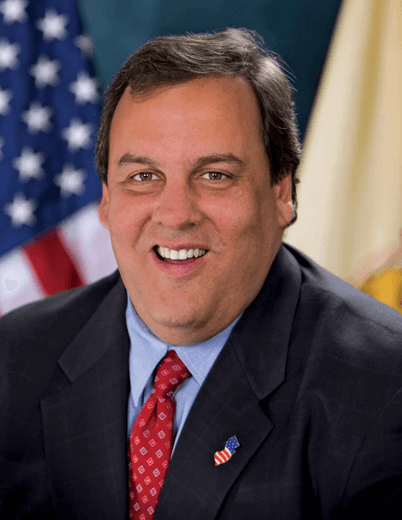A Game-Changer: The Supreme Court’s Sports Betting Decision Explained
The issue of sports betting legality has been debated for a very long time. The most recent development in regard to this subject happened in 2018, when the Supreme Court struck down the Federal Professional and Amateur Sports Protection Act that effectively banned sports betting in the majority of US states, with only four exceptions.
Let’s take a look at the Supreme Court sports betting decisions, and how they impacted the current state of the gambling industry across the United States. We’ll also briefly go through the history of sports betting in the US regarding the past legalizations and bans that took place.
What Is the Professional and Amateur Sports Protection Act and What States Were Exempt From It?

The Professional and Amateur Sports Protection Act was passed in 1992 by Congress and started being enforced on January 1, 1993. Its purpose was to put an end to sports betting, making this form of gambling illegal in all of the US states, excluding Nevada, and partially excluding Montana, Oregon, and Delaware.
More precisely, PASPA banned the states and other governmental entities from operating, promoting, and authorizing sports betting on professional and amateur sports.
The four above-mentioned states were excluded from this rule in full or partially, as they already had explicitly written laws that regulated sports betting. However, Nevada was the only state fully exempt from PASPA.
In Montana, sports pools and square betting were permitted before PASPA, so they remained legal after its enactment. Those located in the state of Delaware could place parlay bets on NFL games. Lastly, in Oregon, Sports Action games were introduced in 1989 by the Oregon Lottery. Sports betting fans in that state were allowed to place parlay bets on NFL and NBA games.
Now, the Supreme Court allows the states to make their own decision regarding sports gambling regulations. In the next section, we’ll take a look at what led to this decision.
The Details of the Murphy v. National Collegiate Athletic Association Case
New Jersey was given the option to establish a sports gambling scheme in Atlantic City and had a year to do so upon the ratification of PASPA. However, the state didn’t advantage of this opportunity at first, a decision it would later reconsider.
In fact, in 2012, an amendment to the New Jersey State Constitution, recognized under the name of the Sports Wagering Act, was supported by a majority vote by the citizens, and the state government was given the authority to legalize sports betting in Atlantic City and at horse racing venues.
This decision led to a federal lawsuit filed by the National Collegiate Athletic Association and four professional sports leagues against the New Jersey State Governor, Chris Christie, and other state officials. The argument was that the amendment violated PASPA, as the act made sports betting illegal nationwide.

On the other hand, the state of New Jersey argued that enforcing PASPA was a direct violation of the Tenth Amendment and the Anti-Commandeering Doctrine. The Tenth Amendment states that the US government is not to impose any laws on the state level unless given the power to do so by the Constitution. The Anti-Commandeering Doctrine was established in 1992 with the New York v. United States case, and it was created based on the Tenth Amendment.
The plaintiffs, referred to as the “Leagues,” were joined by the US Department of Justice, and the case was brought to the District Court. Apart from the PASPA violation argument, they also claimed that sports gambling was hurting the integrity of the sports. The District Court ultimately ruled in favor of the plaintiffs.
After some back-and-forth with appeals and lawsuits, New Jersey would finally win the case on May 14th, 2018, when PASPA was overturned after the Supreme Court deemed it unconstitutional. At the beginning of 2018, Phil Murphy assumed office as the new Governor of New Jersey, and the case was reclassified as Murphy v. NCAA.

What Does the Latest Supreme Court Sports Betting Decision Mean on a State Level?
It should be noted that the Supreme Court decision on sports betting didn’t legalize this form of gambling across the US. Instead, it simply gave the individual states the authority to regulate sports betting.
Since the ruling, sports gambling has been legalized in more than 30 US states, including the District of Columbia. Therefore, people in these states are free to place bets at casinos and sportsbooks, use sports betting platforms like DraftKings, or even bet online using cryptocurrencies.
The first state to enact a law that would permit sports gambling after the 2018 Supreme Court rulings was Mississippi, and the first sports bets in this state were placed on August 1st, 2018. The next state to do so was West Virginia, followed by New Mexico and Pennsylvania. With many states following suit, the sports betting industry is expected to grow by 10.1% per year from 2021 to 2028.
The History of Sports Betting Legalization and Bans in the US
The history of sports betting legalization and bans in the US didn’t start with PASPA in 1992. Back in 1860, the Federal Government placed a ban on many forms of gambling, sports betting included, with the exception of horse racing.
In 1867, horse racing was officially regulated at the state level. However, at the beginning of the 20th century, in 1910, almost all forms of gambling were prohibited. Although horse racing wasn’t officially mentioned, a stigma was created around gambling, and horse race betting saw a significant decrease in popularity, which led to a number of race tracks closing.
It was in 1931 that gambling, including sports betting, was made legal in Nevada. In an attempt to reduce the number of people coming to Nevada from other states to gamble, in 1951, the Federal Government introduced a tax of 10% for bringing Nevada gambling winnings into another state.
A decade later, the Federal Wire Act was signed into law by President John F. Kennedy. This act placed a federal ban on interstate telephone communications being used to place bets. The rule still applies today, as a person from one state can’t place online bets on sportsbooks that are regulated in another state, even if online sports betting is legal in those states.
Then, in 1974, the Federal Government decided to reduce the tax from 10% to 2%, which led to a rise in the number of casino operators. Almost two decades later, PASPA would be enacted, followed by the 2018 Supreme Court gambling case that would change the way sports betting is viewed country-wide.
Final Words
All in all, the subject of sports betting has been very controversial throughout US history, with a long list of laws that regulated sports betting directly.
The Murphy v. NCAA case, where the Supreme Court ruled in favor of the state of New Jersey, was a huge win for sports betting fans, as it allowed individual states to legalize this form of gambling after it had been banned by PASPA for almost three decades.
FAQ
What does the Federal PASPA law forbid?
PASPA forbade almost all US states from licensing, operating, and advertising sports gambling. It was passed in 1992, and took effect on January 1st, 1993.
What states were exempt from PASPA?
The states that were exempt from the PASPA sports betting restrictions included Nevada, Delaware, Montana, and Oregon. That’s because these states already had laws that regulated sports gambling. However, only Nevada was fully exempt.
When did the Supreme Court overturn PASPA?
PASPA was overturned by the Supreme Court on May 14, 2018. The Court sided with the defendants, the State Governor and other state officials, who were sued by the NCAA and four professional sports leagues.
Which amendment was the PASPA deemed to violate?
It was determined by the Supreme Court that PASPA violated the Tenth Amendment. This amendment states that legislative power is to be granted to the states if it wasn’t attributed to the federal government by the Constitution.
What was the decision in Murphy v. NCAA?
The Supreme Court sports betting decisions in the Murphy v. National Collegiate Athletic Association case included deeming PASPA unconstitutional and thus allowed individual states to regulate sports gambling directly. Since then, over 30 states have passed laws to allow this form of gambling.
 BC.Game
BC.Game  7Bit
7Bit  Ducky Luck
Ducky Luck  Red Dog
Red Dog